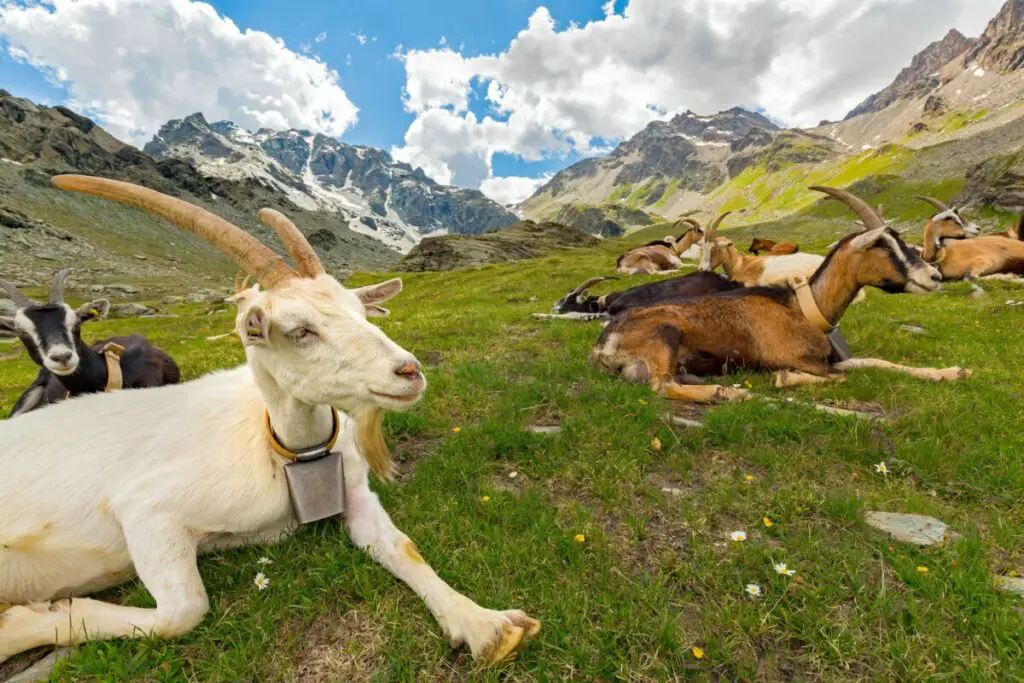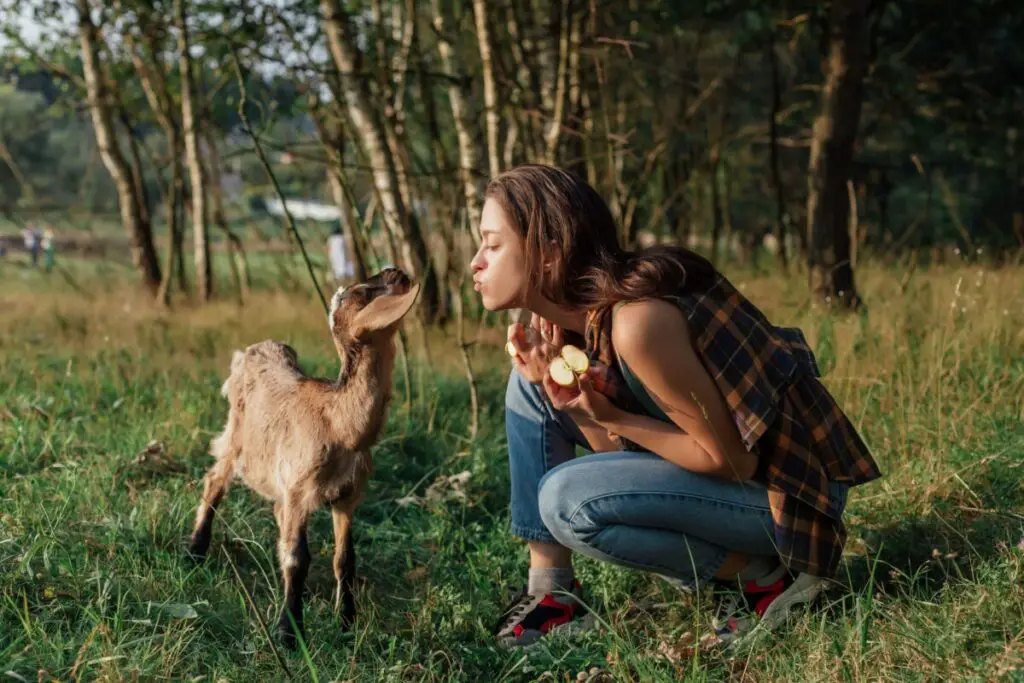
For many farm animal owners, to own a goat is to love a goat. But when you notice your goat kneeling often, especially in silly ways, your mind begins to wander and begs the question: why do goats kneel in the first place?
Goats will kneel to eat their food, rest, out of habit, or because of infection. Goats have callouses on their knees, which can be more comfortable to be on than walking or standing. Some goats that walk on their knees, which is known as carpal walking, have Laminitis.
To understand the behavior of goats, signs of illness to look out for, goat diseases to keep in mind, and how to correct this behavior if it becomes excessive, continue reading below!
Why Do Goats Kneel?
Kneeling goats makes for a funny picture or video to share online, but did you know that there are many reasons why a goat will kneel? Some make the case that a goat on its knees is a goat that is not feeling well. Others beg to differ and say that not all kneeling goats have health issues. Regardless, we will review all perspectives in this article.
All goats, even wild ones, have a section of calloused skin on their knees to act as knee pads — kind of like kneepads that people use while skating! Oftentimes, if a goat is tired, lazy, or just in the habit of doing so, it will rest on its knees while eating. Other times, goats kneel while eating for more technical reasons. If your goat is eating food that is low-grown or is in a pile on the ground, it is simply easier for your furry friend to reach its meal on its knees than while it is standing.
How Do I Know When My Goat is Kneeling Because it is Sick?

Sometimes when your goat kneels, it may be a sign that they are in pain or they have an infection. Some goats will walk on their knees often, maybe for a period of a few days at a time, before stopping. However, the vet Dr. Joseph Mugachia found something interesting when goats walked on their knees, which is known as carpal walking.
Dr. Mugachia observed sheep and goats in Kenya, Africa for eight days. He noticed some goats would sit on their front knees for long periods of time while eating, and some would sit on their carpal joints. Their eating and drinking behaviors were normal, and some goats would stop kneeling after two to three days. Dr. Mugachia noticed that after some time, two goats kneeled consistently.
After treating the animals, Dr. Mugachia encourages farm animal owners to make sure their goats are dewormed. He also advises owners to notice where their goats are kneeling. Goats that kneel on the carpal joint, or the joint just above the hoof, is a definite sign that your goat has an infection or foot rot. Some cases of foot rot will recover on their own, hence why some of the observed goats stopped kneeling after a few days. Other times, it will require professional care to cure.
Keep an eye out for any strange behaviors or symptoms if your goat starts kneeling. If you are surprised by your goat kneeling, it is wise to call your local veterinarian.
How Do I Know When My Goat is Kneeling Excessively?
If your goat is not kneeling because it is easier to eat this way or out of habit, goats will kneel because they have a disease known as Laminitis. Laminitis is inflammation of the hoof, so goats will naturally kneel to avoid pressure on their hoofs. The most common causes of Laminitis are overfeeding and poor diet, but there are other factors as well.
Watch the following video to learn more about Laminitis.
Things that cause Laminitis include:
- System inflammation
- This occurs because of a poor diet, such as sudden high sugar intake. If the goat’s body cannot release the toxins from this diet properly, it may lead to Laminitis.
- It can also happen as a symptom of another animal disease that causes inflammation in the goat’s system,
- This mostly applies to new cases or infections that have not been building up for years at a time.
- Overfeeding or carbohydrate overload
- For cases that have been going on for a long time, or the infection is building up over a period of years, it is usually because you are feeding your goat too much food.
- Direct foot trauma
- If there is a direct injury to the foot or hoof, it may cause Laminitis.
- Genetics
- Some goats are more likely to have Laminitis even with a proper diet and no foot trauma.
How Do I Keep My Goat Healthy?
There are simple things you can add to your goat’s daily routine that can improve its health so it doesn’t develop Laminitis.
First, keeping your goat’s living quarters clean reduces the risk of infection, including parasites. If your goat is in a herd, keep their living spaces not only clean but separate from other livestock, especially livestock from other farms. This reduces the risk of your animals catching diseases. Make sure your goats are dewormed and have all their necessary shots.
Next, just as what you put in your body affects everything, the same goes for your goats. It is easier said than done to put your goat on a good diet because each goat may have its own unique conditions. Do your research as to what your goat may need depending on its age, gender, and health. Keep the following information in mind when doing so.
- Have clean and quality hay. This should be the foundation of your goat’s diet.
- Have plenty of clean water available.
- A milking doe requires calcium-rich alfalfa and supplemental grains.
- A goat that is prone to weight gain may only require grass hay.
- Male goats do not need grain after their first winter.
- Overfeeding causes many health issues.
Overall, kneeling is a normal goat behavior, but if it becomes excessive or your goat seems ill, it is kneeling because it is sick and needs to be taken to the vet.

